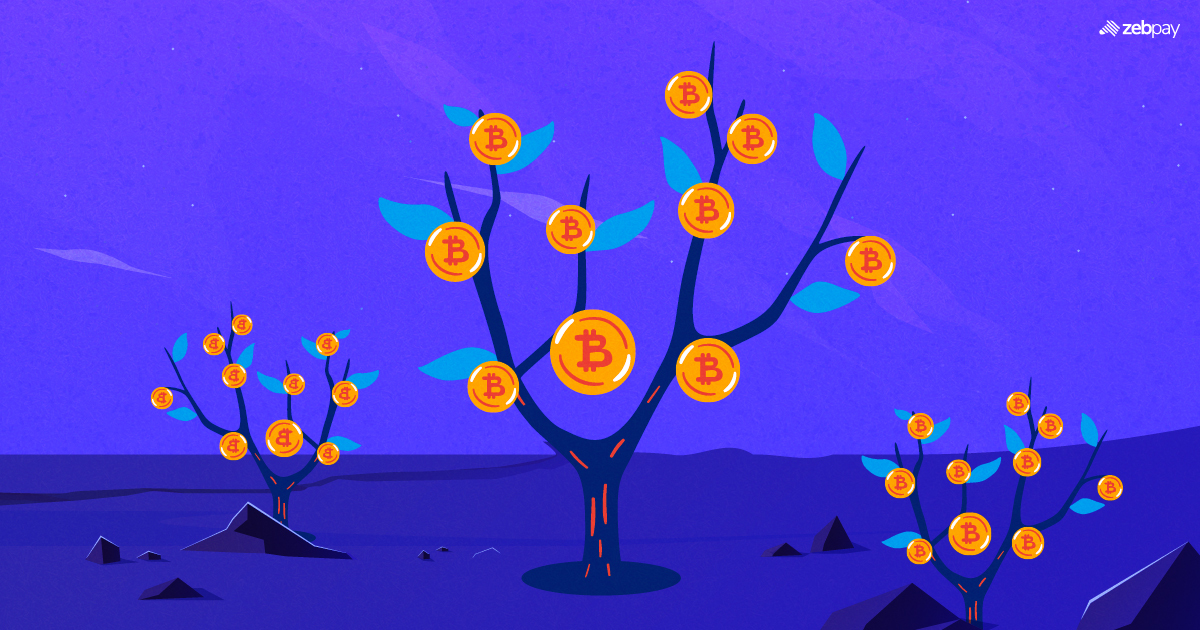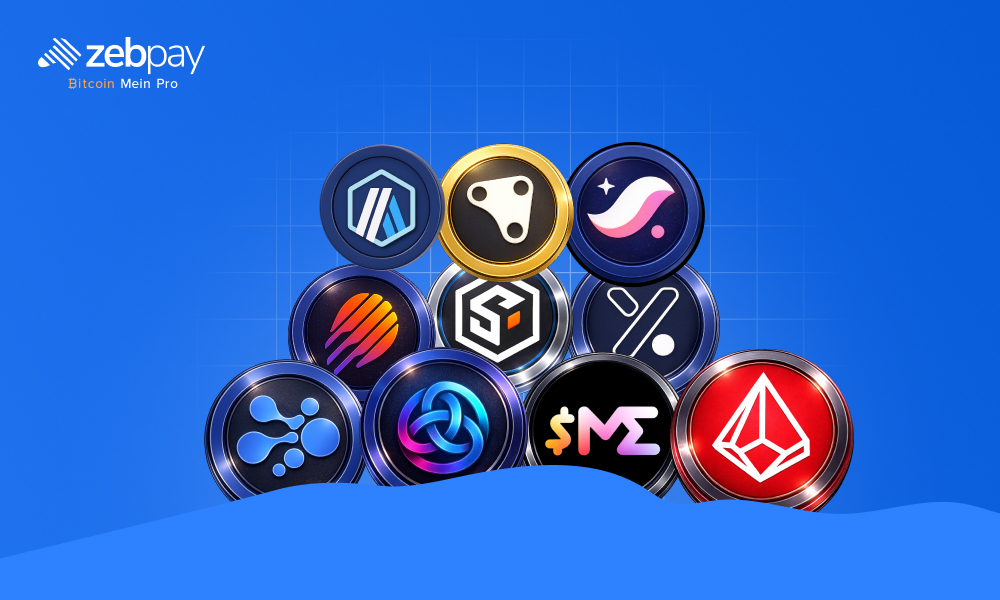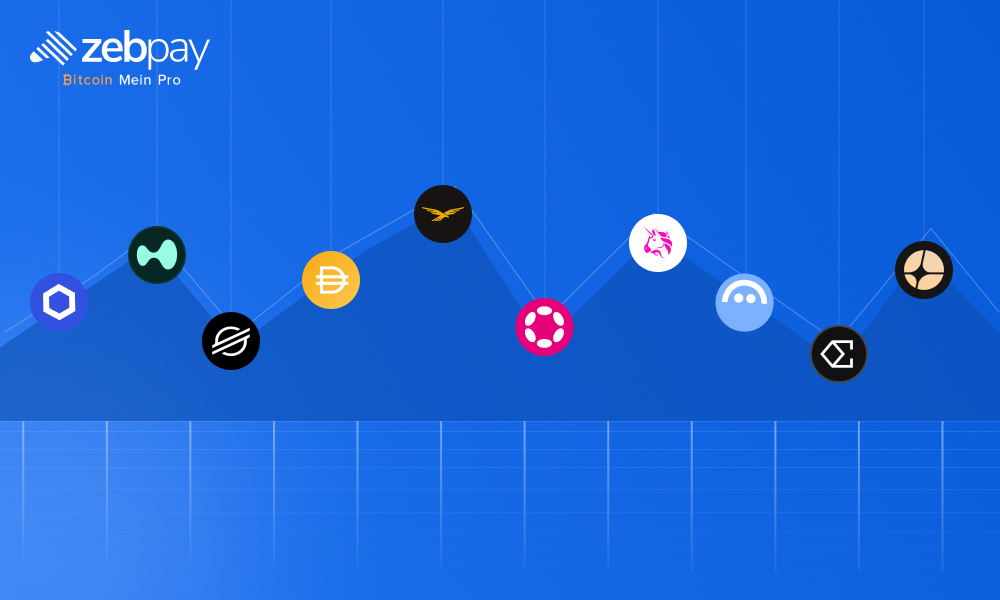Crypto yield farming is a protocol for lending crypto to receive high returns in the form of crypto tokens. This innovative DeFi application has become very popular recently due to the introduction of liquidity mining. It is one of the biggest growth drivers in the DeFi sector. Yield farming protocols incentivize liquidity providers (LPs) to lend their crypto tokens to a liquidity pool that operates on smart contracts.These incentives can be interest from lenders, a part of the transaction fees, or governance tokens. Early on, most yield farmers used to stake stablecoins like USDT and DAI. However, most DeFi protocols now run on Ethereum and offer governance tokens for liquidity mining. You can farm a crypto token from liquidity pools by providing liquidity to decentralized exchanges.
Liquidity mining became popular after Compound started issuing COMP, its governance token, to its users. Today, most DeFi protocols reward Liquidity Providers with governance tokens. These can be traded on both decentralized and centralized exchanges, like Zebpay.
How to Yield a Farm in Crypto?
DeFi enables users to farm different crypto tokens on various blockchain platforms. DeFi platforms use algorithms to adjust prices during events, like when the loss is smaller than the profit. This feature allows it to create more liquidity than other traditional financial platforms.
Read more: Yield Farming vs Staking
Profitability of Yield Farming
Many investors ask which crypto yield farming strategy is most effective and profitable. The answer depends on how much time and crypto tokens you want to invest in yield farming. Many high-risk protocols promise good returns, but the most effective strategy usually requires evaluating DeFi protocols and complex investment chains. DeFi platforms have introduced new features and significantly improved their user interface over the past two years. These new features help users easily interact with their protocols. Implementing security measures to mitigate yield farming risks has been one of the most vital improvements.
There is also an increase in the availability of audited Smart contracts, which helps reduce the risks of online hacks and scams. It also encourages greater trust in DeFi protocols and increases the adoption of yield farming protocols. These changes are making yield farming an attractive method to earn profits on your latent crypto assets. Investing in yield farming requires you to be vigilant and do plenty of research, as it is a dynamic space. It has vastly improved recently and can be profitable, but it remains a high-risk, high-reward investment method. You have to research and evaluate the risks before investing in yield farming protocols.
What are the Risks and Considerations for Yield Farming?
Impermanent loss
Impermanent losses occur when a crypto you have locked into a yield farm loses value.
Crypto Scams
Some criminals can steal your funds through fake yield farms and other crypto scams similar to those in other parts of the crypto ecosystem.
Drying Liquidity Pools
The amount of liquidity can change fast as users supply liquidity and pull their crypto tokens from the pool. Lower liquidity leads to higher slippage; users will receive less money than expected when selling crypto tokens into the pool.
Smart Contract Vulnerabilities
Crypto yield farming involves interacting with smart contracts. These contracts can have vulnerabilities that can be exploited by bad actors, which can result in significant losses.
Yield Farming Strategies and Best Practices

Liquidity Provider
Crypto users deposit two crypto tokens on a decentralized exchange to provide liquidity. DEXs charge a fee to swap the two tokens, which are paid to LPs or liquidity providers. These fees are occasionally paid in new LP tokens.
Lending
Crypto token holders can lend tokens to users using a smart contract and earn interest.
Read more: What is Crypto Lending
Borrowing
Yield farmers can use one crypto token as collateral and receive a loan for another token. They can then farm with the borrowed tokens. This allows farmers to keep their initial holding, which can increase value and earn a yield on the borrowed tokens.
Staking
Staking usually occurs in a proof-of-stake blockchain, where a user is rewarded for investing their tokens in the network to maintain security. You can also stake LP tokens earned from DEXs to supply liquidity. This allows you to earn yield twice as you are rewarded with LP tokens to supply liquidity, which can be staked to earn more yield.
Read more: What is Crypto Staking
Is Yield Farming Profitable?
Yes, it can be profitable, depending on how much effort and money you are willing to invest in yield farming. High-risk strategies can prove profitable, but require thorough research on DeFi protocols and platforms. You can first try to invest a few crypto tokens in a trustworthy liquidity pool or platform and monitor how it performs. You can then progress and make other investments after developing some confidence.
Conclusion
Yield farming can be an attractive method to earn passive income, but it has risks associated with it. Crypto investors who prioritize long-term and buy-and-hold strategies might prefer investing in crypto yield farms. You can maintain the risk and keep it low with simple staking. Additionally, you can be a part of the world of DeFi by investing in trustworthy liquidity pools. There are many options and possibilities to explore, and there is potential to make big returns on your holding. Evaluate the team, token, exchange, and other intrinsic factors before investing in the yield farming protocol.
Learn more about Crypto on ZebPay blogs. Click on the button below to join the millions already using ZebPay.






